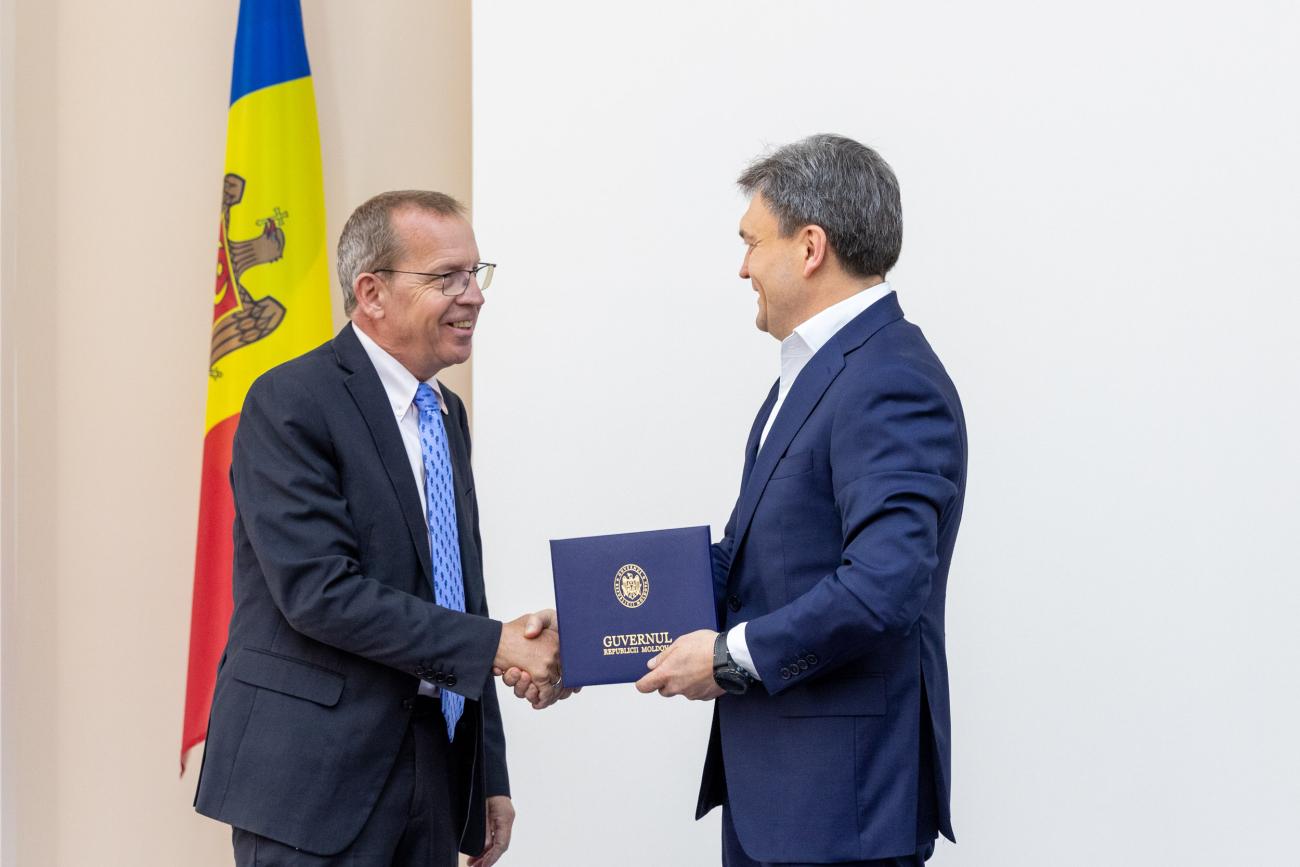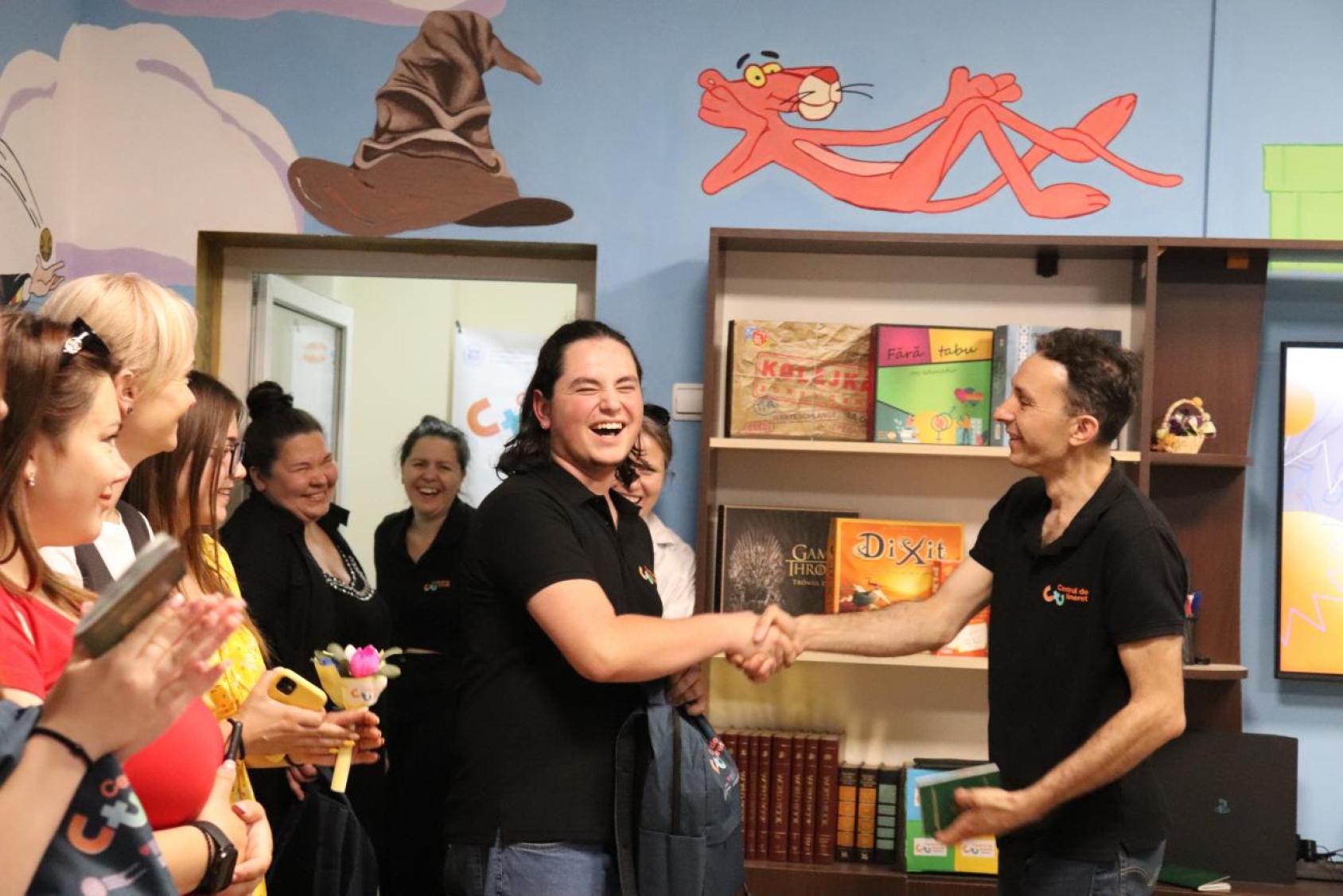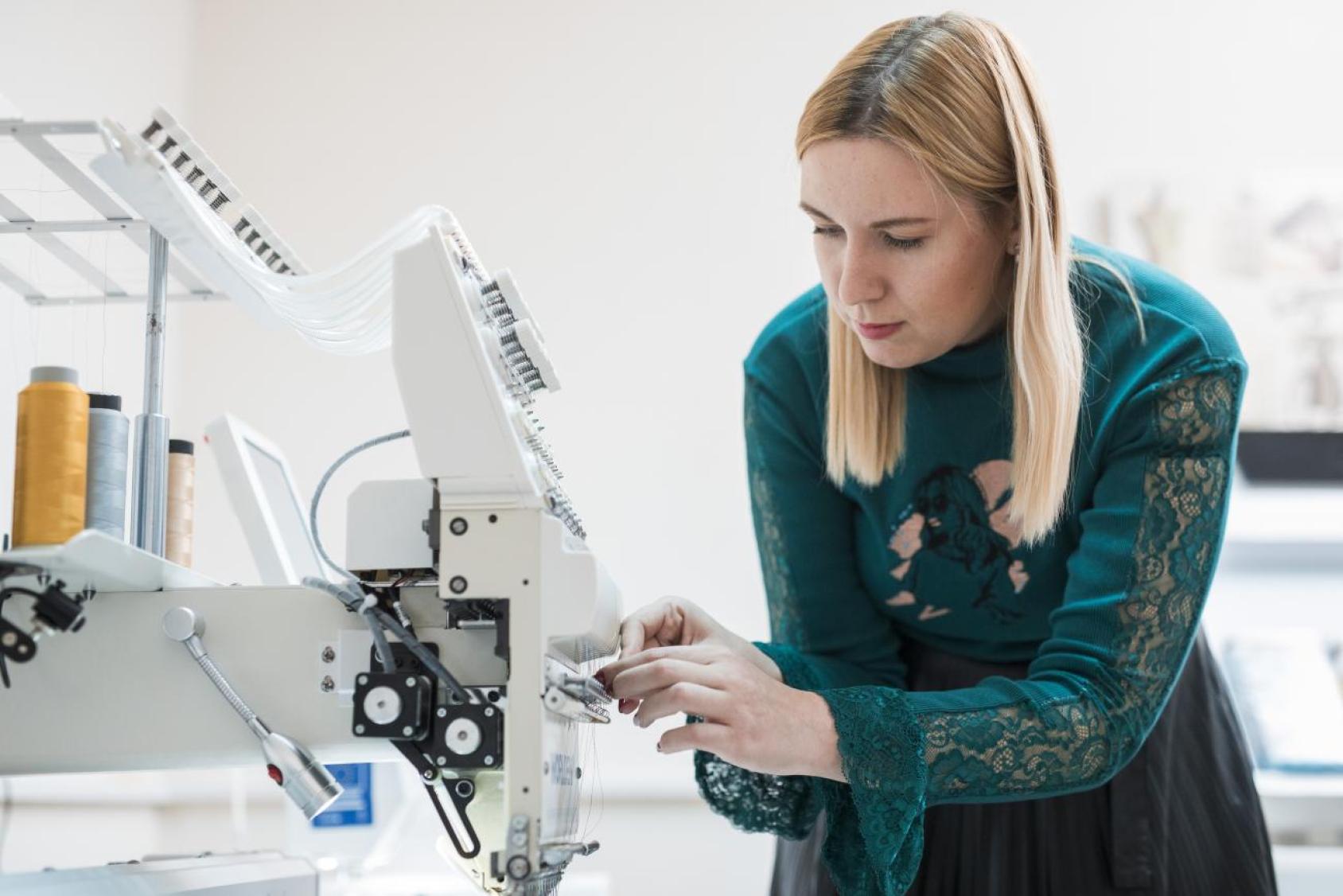Navigating Crises, Fostering Progress: The Role of Coordination in Moldova's Progress

As my five-year tenure as UN Resident Coordinator in Moldova draws to a close, I’m filled with an overwhelming sense of gratitude, pride, and inspiration.
Together with the UN Country Team, Resident Coordinator’s Office, and UN staff, we have significantly advanced on Moldova's progress towards the Sustainable Development Goals (SDGs). Notably, Moldova ascended from 46th place in 2022 to 25th in 2023, according to the global Sustainable Development Report. This progress on the SDGs has direct implications for Moldova’s accession to the European Union (EU).
A joint analysis by the Government, EU delegation and the UN in Moldova shows that 76 per cent of SDG targets are linked to individual EU accession negotiation clusters. Complementing this, 93 per cent of the UN Sustainable Development Cooperation Framework 2023-2027 indicators align with the policy recommendations of the European Commission (EC). The analysis helps monitor and demonstrate how the EU accession and the 2030 Agenda reinforce and complement each other.
Despite two consecutive crises—the COVID-19 pandemic and the war in Ukraine— both of which have deeply impacted the Moldovan economy and people, the UN continued to deliver more, faster and better support to the country.
Deepening roots and delivering more
The Cooperation Framework, served as a guidepost for national priorities and needs as well as for the European aspirations of Moldova. The UN Country Team has expanded from 18 to 24 entities over the past four years, while the number of staff has tripled, reaching 679 employees by April 2024. To enhance transparency of the UN’ work and achievements in Moldova, in 2022 two dashboards, UN Info Moldova and Common Country Analysis were developed. These initiatives ensure uniform data collection and use across UN entities, increasing accountability and building trust with partners.

Looking back at my time, leading this UN team and fostering collaboration and impact, here are five areas where we helped shape Moldova’s trajectory to a better future:
1) Multifaceted response to the pandemic, war and increasing cost of living
Collaborating closely with the Government and partners, the United Nations swiftly addressed pressing needs and provided vital support, including the procurement and distribution of vaccines and assistance to various vulnerable groups disproportionately affected by the COVID-19 pandemic. Our efforts facilitated the administration of 1.8 million vaccine doses across 578 vaccination centres and the issuance of over one million vaccination certificates.
Furthermore, the Socio-Economic Response and Recovery Plan, developed by the UN, strategically integrated socio-economic recovery efforts within the national COVID-19 response and long-term development plans, ensuring inclusivity and resilience.
Yet with the war in Ukraine, resulting in an influx of almost one million refugees, Moldova had new challenges to overcome. Receiving more refugees per capita than any other country with over 120,000 people, mostly women, children and elderly people, finding shelter in Moldova, the Government and citizens had to address the enormous burden they suddenly faced. Rising energy prices also heightened the risk of poverty for vulnerable groups. The Government, UN agencies, local and international organizations collaborated to respond to the crisis. Alongside development cooperation and peacebuilding, we supported both refugees and host communities, strengthening national systems, and investing in social cohesion between populations. We are proud that in Moldova, from the outset, the response to these cascading crises has integrated short-term relief, long-term development and peacebuilding efforts.
2) Advancing gender equality
Women from Moldova face heightened vulnerability to poverty due to several factors including the unequal distribution of unpaid care responsibilities, lower employment rates among women—especially mothers with young children—and disparities in pension benefits.
In 2022 the RCO brought together UN Women, UN Population Fund and the World Bank to conduct a comprehensive national gender assessment that would gauge the state of gender equality in Moldova across various sectors and to better understand the root causes of gender inequality in Moldova. The findings of this assessment have been instrumental in shaping the Cooperation Framework 2023-2027 and the new World Bank Country Partnership Framework for the Republic of Moldova.
A key challenge on gender equality has been the issues faced by working mothers, in this regard the government enacted legislation on alternative care services, aiming to expand employment opportunities for women. In 2023 alone, 19 family-friendly spaces were established or refurbished in public settings to further address this need. Additionally, the approval of the National Programme for Preventing and Combating Violence Against Women and Domestic Violence 2023-2027 signifies a strong commitment to gender equality and established a Governmental Agency overseeing relevant legislation and policies on gender-based violence.

3) Empowering data-driven decision-making
Data integrity and accessibility has always played a pivotal role in informing evidence-based decision-making and policy formulation and implementation at local and national levels. The UN in Moldova has significantly contributed to improving the National Bureau of Statistics’ data capabilities, including through digitalization that resulted in improved data quality for vulnerable and marginalized groups among others. In early 2024, the Government with the UN’s support administered the first fully digital population and housing census.
4) Driving social transformation through the “Restart” reform
Under my leadership, various UN entities were able to align their support and provide their expertise to the “Restart” reform process, one of the most complex reforms Moldova has gone through in the last 15 years. Encompassing labour inspection, social protection, reorganization of the national employment agency and child protection, the reform signals a new era, amending several key laws to better protect Moldovans. Coordination emerged as a cornerstone in designing, launching, and implementing the reform, with UN agencies providing steadfast support throughout the process.
5) Empowering youth voices
In Moldova, youth comprise almost 30 per cent of the general population, representing a driving force for a better, more sustainable future. The Adolescents and Youth Advisory Panel (UN AYAP) empowers youth voices and supports the UN Country Team in prioritizing youth well-being in its sustainable development agenda. Since 2021, over 1500 youth have been engaged through the “SDG in your school” campaign, youth centres, schools, and other institutions, calling peers to build a better, greener, and more sustainable future.
As I bid a farewell to Moldova, I am filled with profound satisfaction and hope for the results we’ve achieved together with the Government, partners, civil society, private sector, and citizens of Moldova.
This blog was written by UN Resident Coordinator for Moldova from 2019 to 2024 Simon Springett. To learn more about the work of the UN in Moldova visit moldova.un.org.













